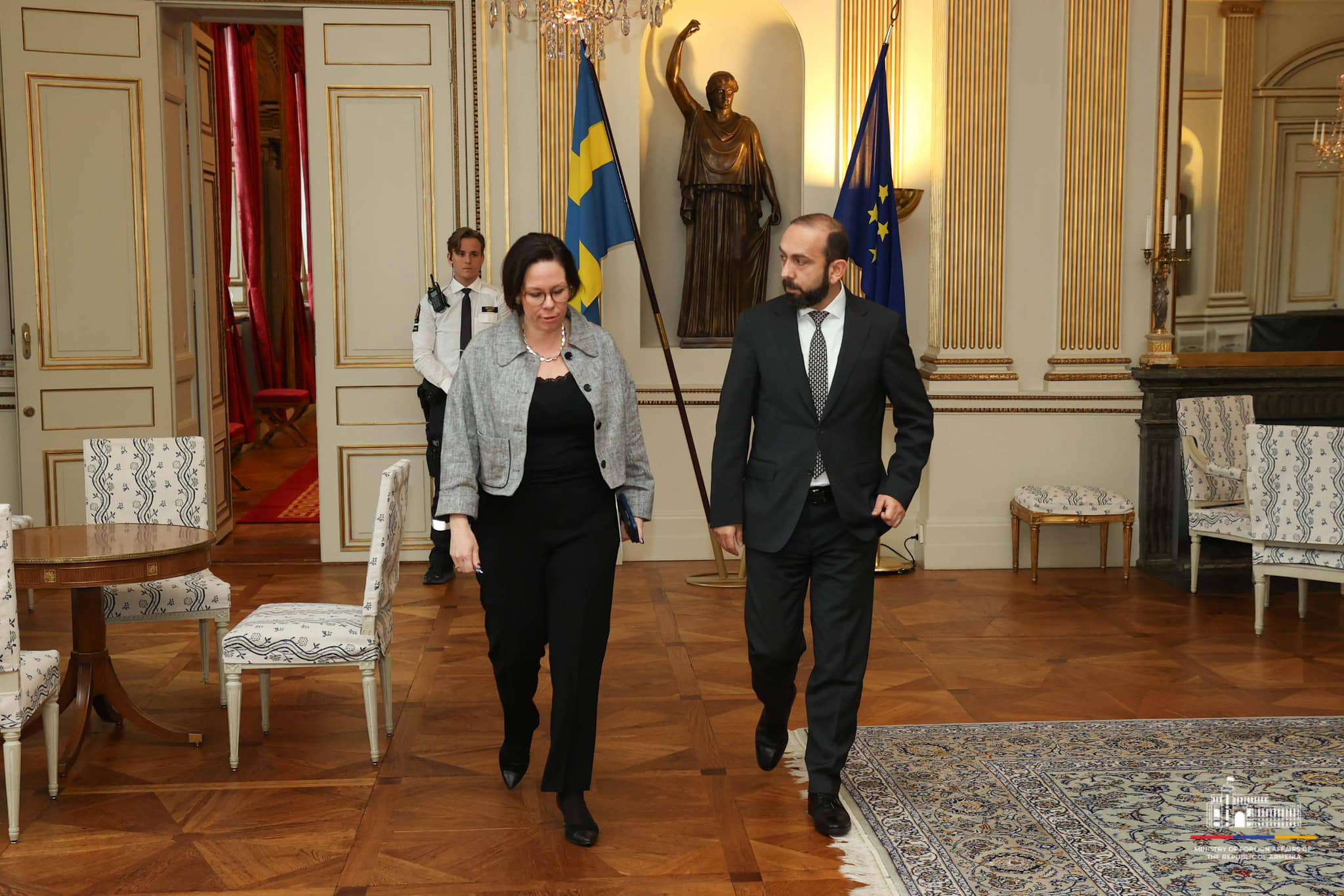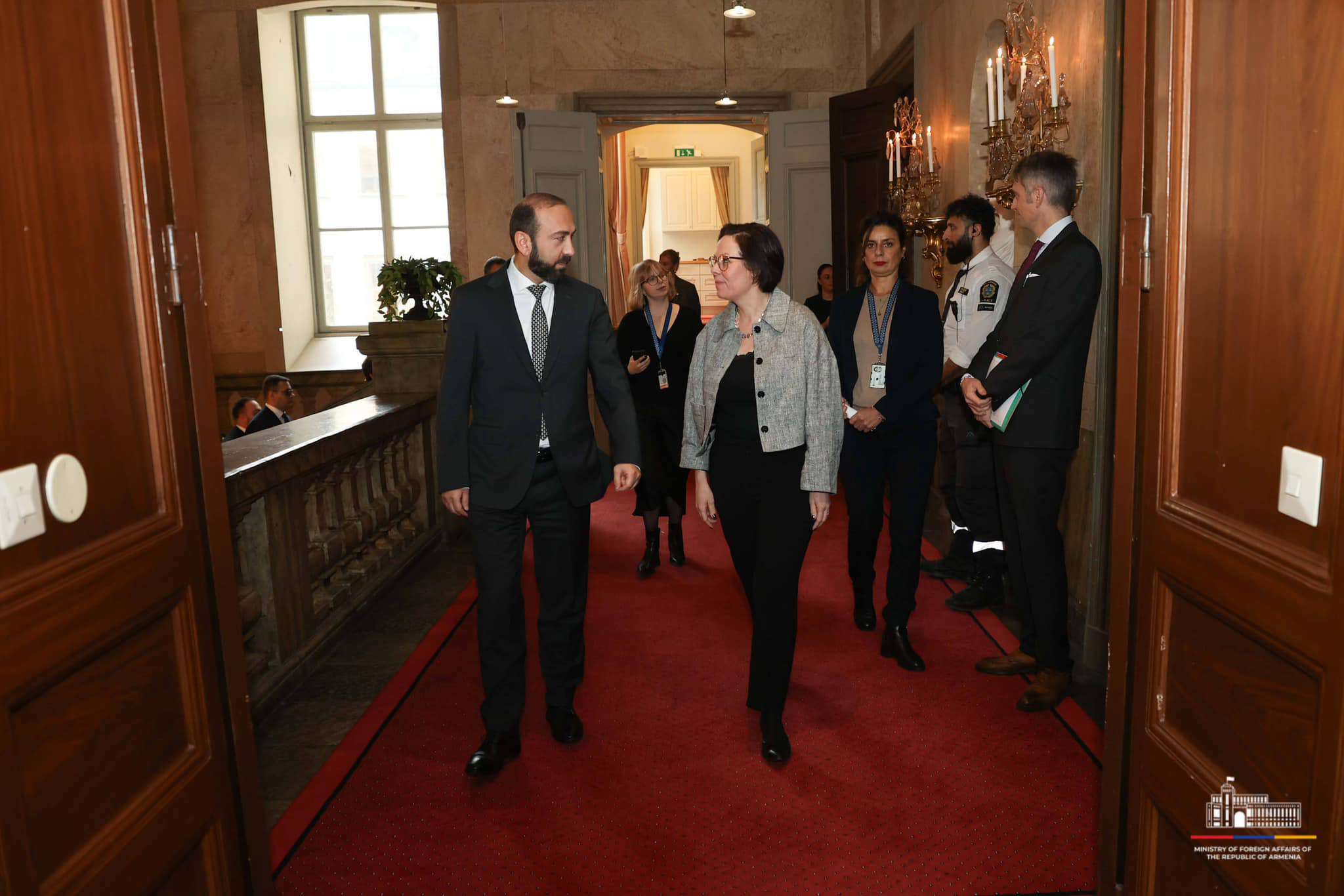During the working visit of RA Foreign Minister Ararat Mirzoyan to the Kingdom of Sweden, a wide range of agenda issues were discussed.
The RA MFA reports that Ararat Mirzoyan had a private conversation with Swedish Foreign Minister Maria Stenergard.
The interlocutors discussed the future perspectives of expanding the high-level political dialogue between Armenia and Sweden, enriching the bilateral agenda, and deepening cooperation. The main areas of mutual interest were highlighted to promote sectoral collaboration.
RA Minister of Foreign Affairs noted. "This is my third visit to Sweden, but the first in a bilateral format. Thank you for the hospitality and fruitful discussions aimed at deepening the cooperation between our two countries in different directions based on democratic principles, shared values , and interests. I am sure that with joint active efforts, we can best realize the possibilities of expanding our partnership both bilaterally and with the EU, including further promoting political dialogue, trade, business ties, and people-to-people contacts.
The current stage of the RA-EU partnership, the recorded achievements, and the possibilities for further development of the new ambitious agenda were immediately addressed.
The Foreign Ministers of Armenia and Sweden also exchanged ideas on regional security and stability issues. Minister Mirzoyan reaffirmed and emphasized Armenia's vision of achieving stable peace in the South Caucasus, including the regulation of relations with the neighbors, by ensuring the promotion of economic development in the region.
The Minister of Foreign Affairs of the Republic of Armenia presented the efforts towards concluding a peace treaty between Armenia and Azerbaijan and the agreement recorded in the border delimitation process between the two countries, based on the Alma-Ata declaration.
In the context of regional issues, reference was made to the "Crossroads of Peace" developed by the RA government, the implementation of which, according to the RA Foreign Minister, will effectively increase regional connectivity by unblocking transport infrastructures.





















